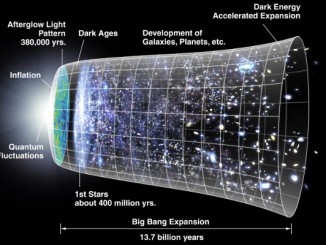
Standard Model

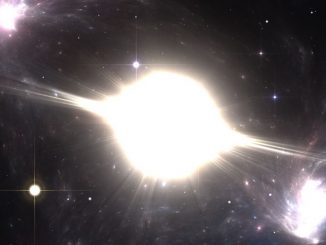
The universe is expanding at an accelerating rate — or is it?
Five years ago, the Nobel Prize in Physics was awarded to three astronomers for their discovery, in the late 1990s, that the universe is expanding at an accelerating pace. Now, a team of scientists led by Professor Subir Sarkar of Oxford University’s Department of Physics has cast doubt on this standard cosmological concept.
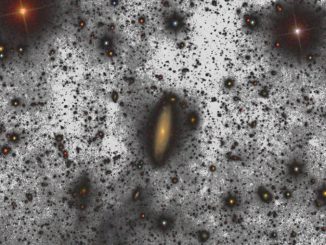
Ten-metre Canary Island telescope obtains deepest Earth-based galaxy image
The Instituto de Astrofísica de Canarias (IAC) set out to test the limit of observation which can be reached using the largest optical-infrared telescope in the world: the Gran Telescopio CANARIAS (GTC). The observers managed to obtain an image 10 times deeper than any other obtained from the ground, observing a faint halo of stars around the galaxy UGC0180.
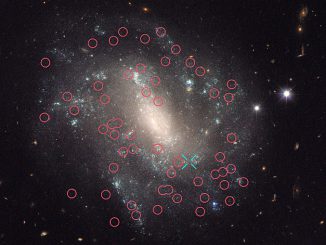
Hubble finds universe is expanding faster than expected
When Edwin Hubble discovered nearly 100 years ago that the universe was uniformly expanding in all directions, the finding was a big surprise. Then, in the mid-1990s, another shocker occurred: astronomers found that the expansion rate was accelerating, perhaps due to “dark energy.” Now, the latest measurements of our runaway universe suggest that it is expanding faster than astronomers thought.
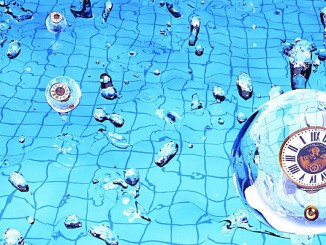
Theorists propose a new method to probe the beginning of the universe
How did the universe begin? And what came before the Big Bang? Astrophysicists have asked these questions ever since discovering that our universe is expanding. New research suggests that subatomic heavy particles act as “primordial standard clocks,” offering a way of probing the beginning of space and time to determine which of the competing cosmological theories is correct.
